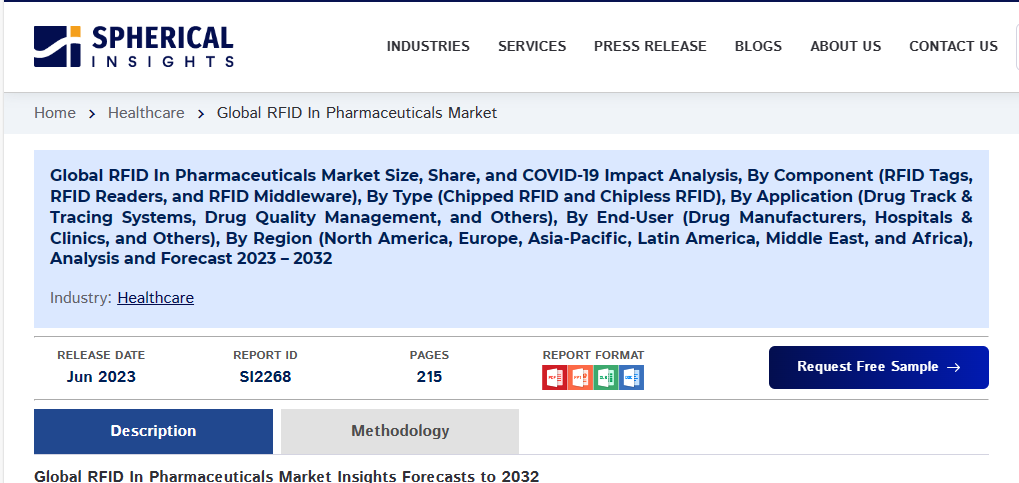
The Global RFID in Pharmaceuticals Market is experiencing significant growth, with a projected value of USD 8.76 billion by 2032, indicating a CAGR of 7.5% from 2023 to 2032. RFID technology has become pivotal in the pharmaceutical industry, facilitating enhanced inventory management, supply chain visibility, and drug authenticity tracking. The technology utilizes RFID tags comprising microchips and antennas to transmit and receive data via radio waves, ensuring real-time monitoring of drug movements and reducing counterfeiting risks.
Key driving factors for RFID adoption include stringent regulatory requirements, the need for robust track-and-trace solutions, and the desire to improve supply chain efficiency. Furthermore, RFID integration with emerging technologies like IoT and blockchain enhances its utility in pharmaceuticals. However, barriers such as high initial implementation costs, data security concerns, and interoperability challenges exist.
The market is segmented by component (RFID tags, readers, middleware), type (chipped RFID, chipless RFID), application (drug track & tracing systems, quality management), and end-user (drug manufacturers, hospitals). North America leads in market share due to its advanced healthcare system and regulatory initiatives. Recent developments include collaborations such as Schreiner MediPharm and SCHOTT Pharma’s RFID-labelled syringes and product innovations like Avery Dennison Smartrac’s AD Minidose U9 RAIN RFID inlay.
Key players in the market include Zebra Technologies Corp., CCL Healthcare, Fresenius Kabi AG, Avery Dennison Corporation, Impinj Inc., Bluesight, Terso Solutions Inc., GAO RFID Inc., Tageos, Alien Technology and LLC among others. The report offers insights into competitive strategies, market dynamics, and regional analysis to aid stakeholders in making informed decisions.
